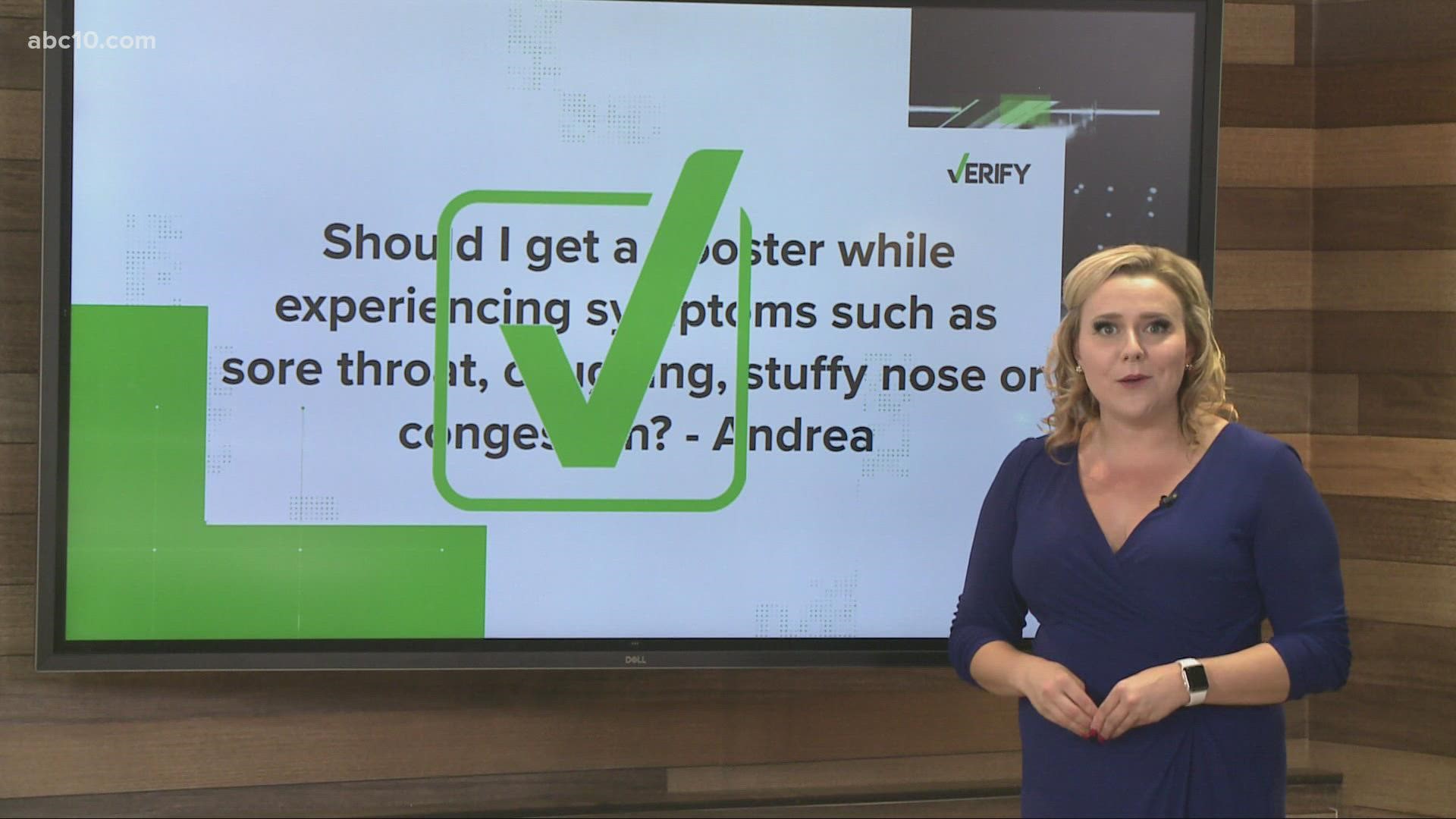SACRAMENTO, Calif. — It's that time of year again when a stuffy nose or cough might be something all too familiar in your household, school or workplace.
At the same time, many adults are working to get their COVID-19 booster shots, and kids ages five to 11 will be working on getting their first dose.
That's led to questions from ABC10 viewers like Andrea, who was wondering if she can still get her booster shot while experiencing symptoms such as sore throat, coughing, stuffy nose or congestion.
THE QUESTION
Should I get a booster while experiencing symptoms such as sore throat, coughing, stuffy nose or congestion?
THE SOURCES
- Dr. Dean Blumberg, Professor and Chief of Pediatric Infectious Diseases at UC Davis Children's Hospital
- Dr. Tom Hopkins, a Roseville Internal Medicine Physician
- The Centers for Disease Control and Prevention
THE ANSWER
Yes, you can still get your booster while experiencing mild symptoms such as sore throat, coughing, stuffy nose or congestion.
If it's anything more than that, doctors ask you to stay home and trade that vaccine appointment for a COVID-19 test instead.
WHAT WE FOUND
"For example, there might be somebody who has a temperature of 99 and a mildly runny nose and a little bit of a sore throat, but they're otherwise eating normally, able to go about their usual business, you know. That's the sort of person I would vaccinate," Dr. Blumberg said.
Blumberg says if those sniffles aren't enough to knock you off your feet and keep you away from work, school or your regular routine, you can still roll up your sleeve and get vaccinated.
"I wouldn't vaccinate (someone) who was like 104 degrees fever and like in bed and can barely get out of bed. That person's too sick," he said.
The CDC says people with mild illnesses can be vaccinated and while there is no evidence acute illness reduces vaccine efficacy or increases adverse reactions, as a precaution, they say to delay vaccinating if you're in the range of moderate to severe symptoms.
"The moderate symptoms are things like fever, chills, body aches, when you really understand that your body is under an immunologic attack from whatever it's trying to fight off," Dr. Hopkins said. "The fear is that getting a vaccine during that time, you may not get the immune response that leads to the protection that you're trying to get from the vaccine."
Want something verified? Text your question to 916-321-3310.
► ABC10 in your inbox: Sign up now for the Daily Blend Newsletter for local headlines, weather, tips and even something to make you smile.
► ABC10 on demand: Get access to our local news, live programming and weather with the free ABC10 app for Roku and Amazon Fire TV.
WATCH ALSO:

